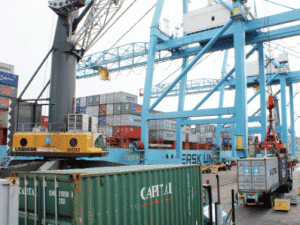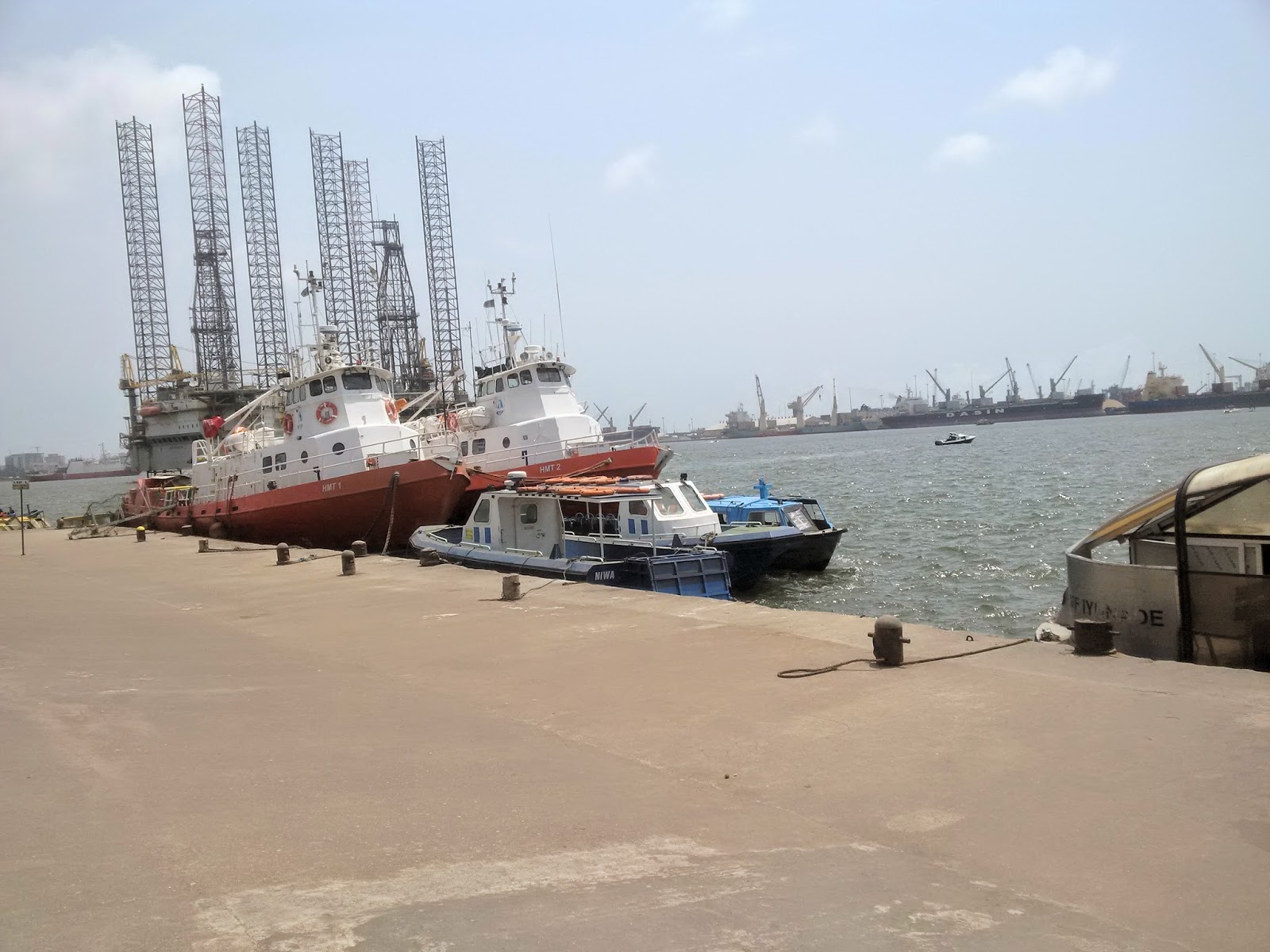The
Association of Nigerian Licensed Customs Agents (ANLCA), Lilypond Chapter,
Lagos, says only the Federal Government intervention can increase the movement
of containers and business activities at the port.
Association of Nigerian Licensed Customs Agents (ANLCA), Lilypond Chapter,
Lagos, says only the Federal Government intervention can increase the movement
of containers and business activities at the port.
Mr
Chuks Njemanze, Chairman of the association said in an interview in Lagos that
government’s intervention would boost business transactions in the more than
10,000 capacity terminal.
He said government should take the responsibility of ensuring that containers were stemmed to feed the terminal.
Njemanze
said that the concessioning of the ports disorganised the movement of
containers to Lilypond.
said that the concessioning of the ports disorganised the movement of
containers to Lilypond.
According
to him, the concessionaires use the privatisation platform to create another
terminal that took over their businesses.
to him, the concessionaires use the privatisation platform to create another
terminal that took over their businesses.
“The
issue is a very fundamental issue in the sense that Lilypond has a status of a
dry port.
issue is a very fundamental issue in the sense that Lilypond has a status of a
dry port.
“Before
the inception of the concession, Lilypond had a berthing space at Apapa at shed
six where every vessel that berths there, all to the onward transfer to the
Lilypond.
the inception of the concession, Lilypond had a berthing space at Apapa at shed
six where every vessel that berths there, all to the onward transfer to the
Lilypond.
“But, immediately after the concession, all
those things were disorganized. Right now, we are at the mercy of the
concessionaire that is in charge of stemming vessels, which is very wrong.
those things were disorganized. Right now, we are at the mercy of the
concessionaire that is in charge of stemming vessels, which is very wrong.
“They
ought to have been a tree port, when these vessels berth, for onward
distribution, to both bonded terminals and dry ports. So that that place will
always be empty for movement.
ought to have been a tree port, when these vessels berth, for onward
distribution, to both bonded terminals and dry ports. So that that place will
always be empty for movement.
“But
now, they also have established a terminal there and saddled with the
responsibility of generating revenue. So, it now becomes a kind of challenge,
wanting to outdo another command in revenue generation,” Njemanze said.
now, they also have established a terminal there and saddled with the
responsibility of generating revenue. So, it now becomes a kind of challenge,
wanting to outdo another command in revenue generation,” Njemanze said.
He
called on government to consider the economic contribution that activities in
the terminal would make as was its plan when the terminal was established as a
dry port.
called on government to consider the economic contribution that activities in
the terminal would make as was its plan when the terminal was established as a
dry port.
Responding,
Mr Bolaji Akinola, Spokesman for the Seaport Terminal Operators of Nigeria
(STOAN) said terminal operators were not responsible for stemming containers
out of the ports and should not be blamed for that.
Mr Bolaji Akinola, Spokesman for the Seaport Terminal Operators of Nigeria
(STOAN) said terminal operators were not responsible for stemming containers
out of the ports and should not be blamed for that.
He
said that the concession had made the port operations more efficient, making
them have only occasional needs for the off-dock terminals, especially those
close to the ports.
said that the concession had made the port operations more efficient, making
them have only occasional needs for the off-dock terminals, especially those
close to the ports.
“Well,
first and foremost, is to say that terminal operators are not responsible for
transfer s to off-dock facilities. Ours is to handle boxes in our facilities.
first and foremost, is to say that terminal operators are not responsible for
transfer s to off-dock facilities. Ours is to handle boxes in our facilities.
“The
essence of the port reform and concession of the terminal was to bring
efficiency into the terminal. So, there is efficiency inside the terminals.
essence of the port reform and concession of the terminal was to bring
efficiency into the terminal. So, there is efficiency inside the terminals.
“There
is no need for any of those terminals around. We will use them only when we are
short of space inside the main facilities, but in a situation where you have
abundant space, there is no need for any transfer to any off-dock facility.
is no need for any of those terminals around. We will use them only when we are
short of space inside the main facilities, but in a situation where you have
abundant space, there is no need for any transfer to any off-dock facility.
“Because
transfer to off-dock facility even adds to the cost of clearance, add to the
cost of doing business and also adds to the time of clearing.
transfer to off-dock facility even adds to the cost of clearance, add to the
cost of doing business and also adds to the time of clearing.
“You
will be aware that last year, customs said they transferred 55,000 units of
containers from Apapa port to off-dock facilities. So, it tells you where the
responsibility and the power to transfer lies.”
will be aware that last year, customs said they transferred 55,000 units of
containers from Apapa port to off-dock facilities. So, it tells you where the
responsibility and the power to transfer lies.”
Akinola
also said that low volume of imports, as was being experienced presently, meant
abundant capacity inside the main terminal, making it impossible to move
containers to support outside terminals.
also said that low volume of imports, as was being experienced presently, meant
abundant capacity inside the main terminal, making it impossible to move
containers to support outside terminals.


































































